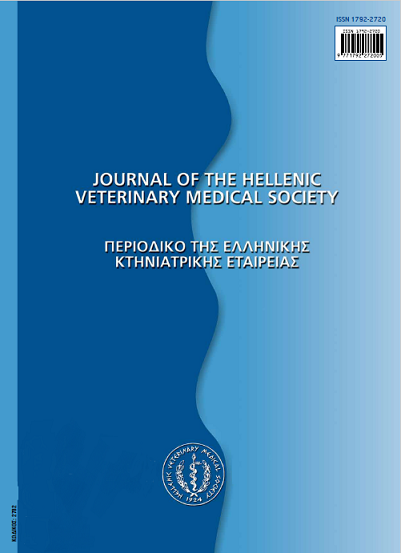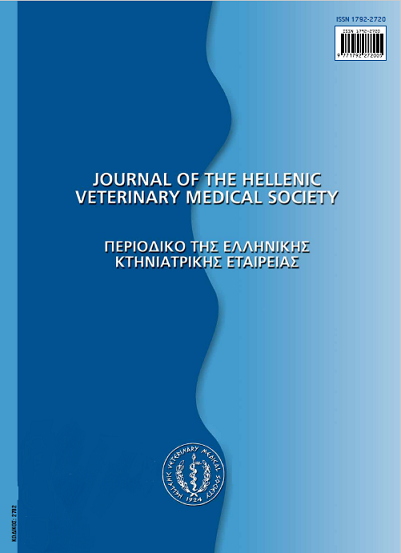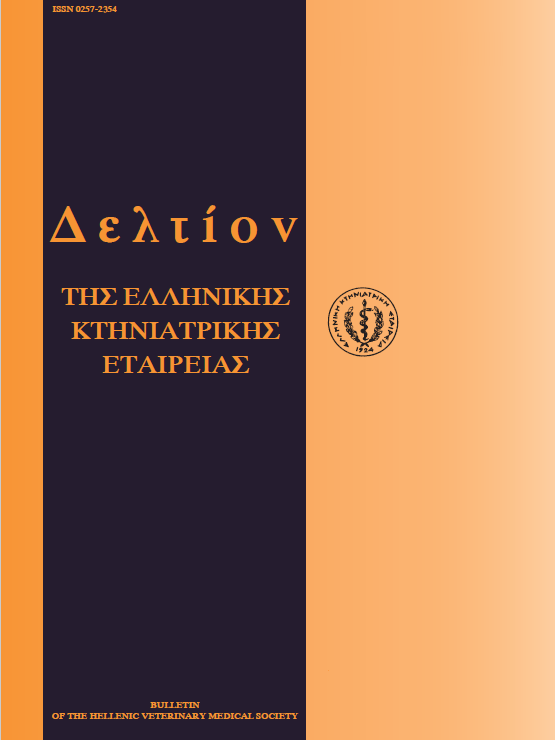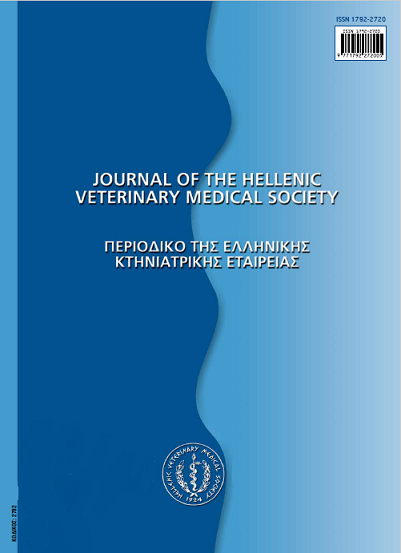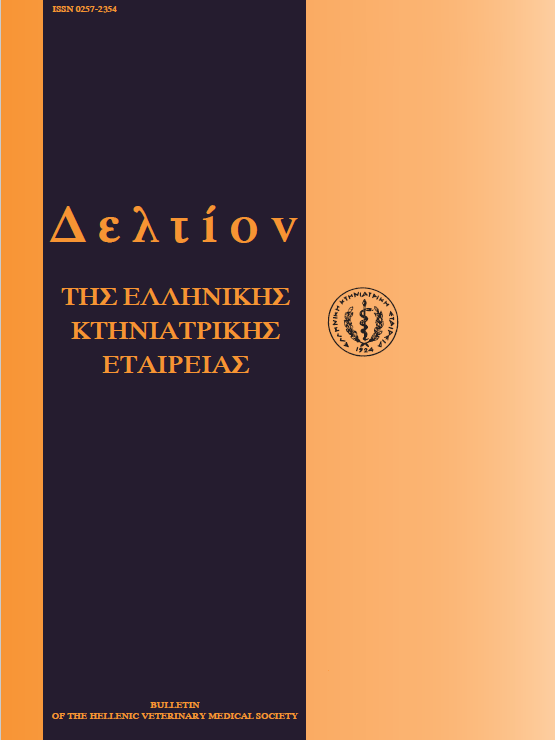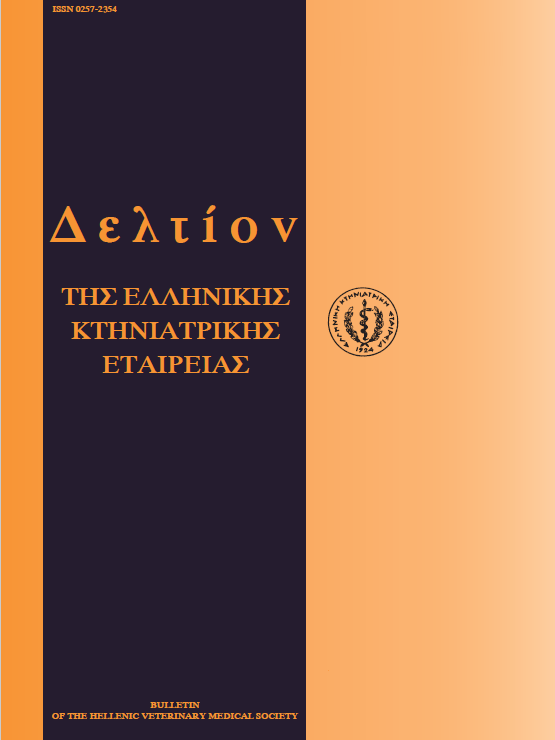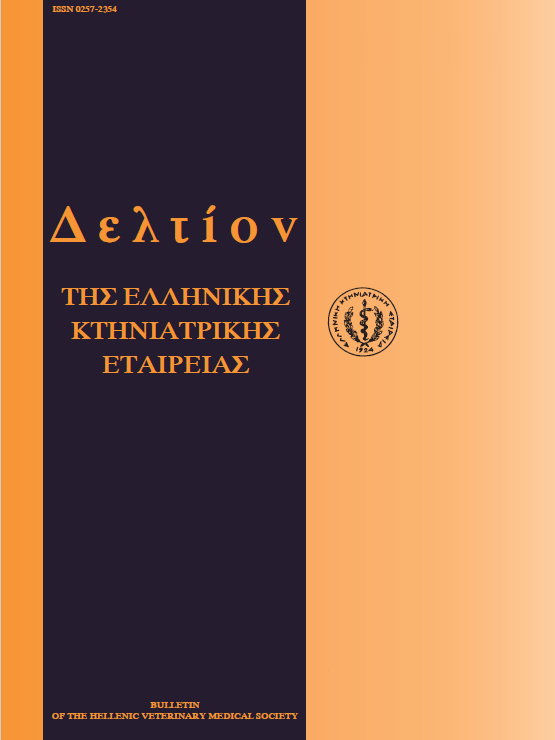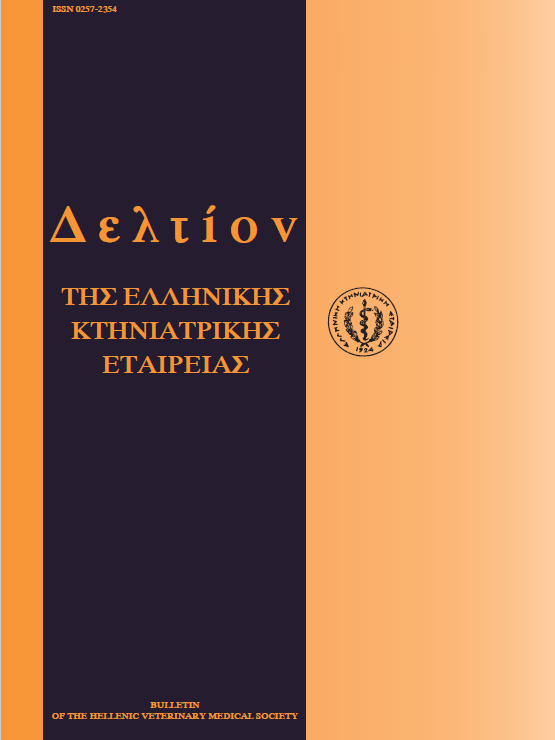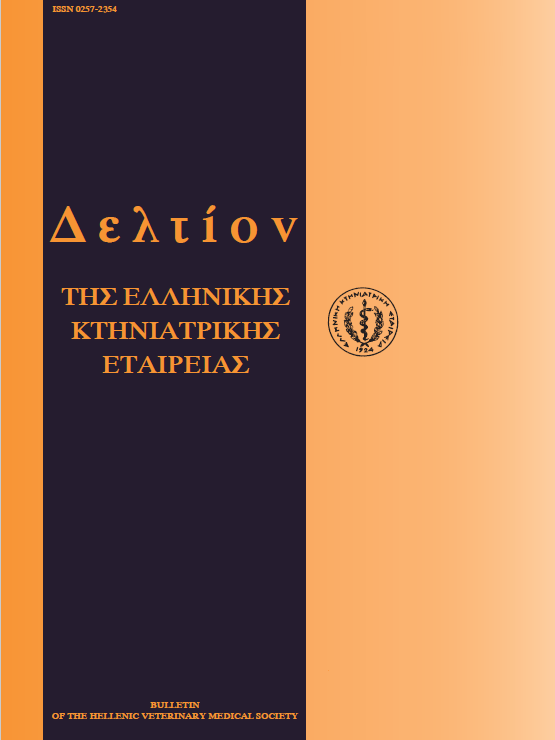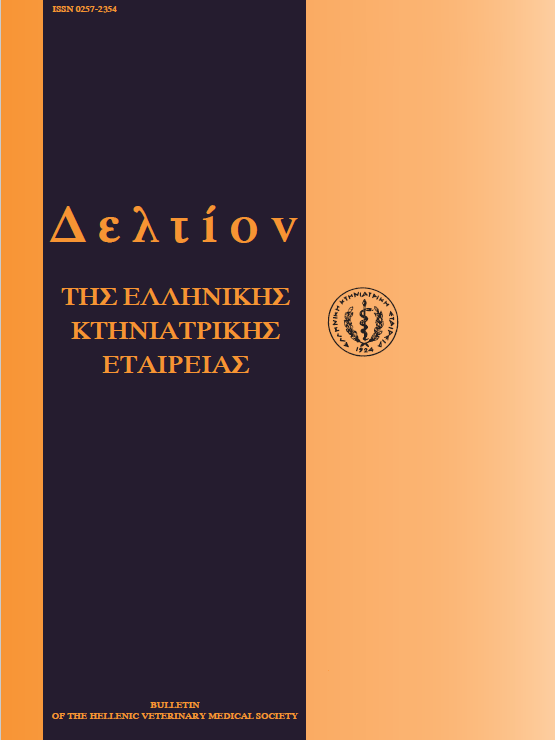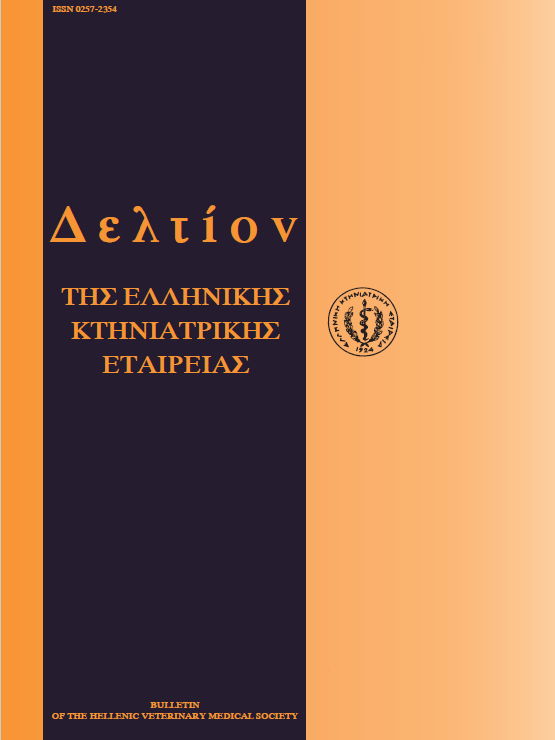Leptospirosis: An important re-emerging infection of animals and man
Abstract
Leptospirosis, a re-emerging infection of animals and man, is caused by one of 200 serotypes of Leptospira spp. The genus is currently divided into eight pathogenic species, infecting various animal species and man, either clinically or subclinically. Natural hosts of the microorganism are traditionally, but not exclusively, considered to be rodents. Infected animals excrete Leptospira in the environment, where it may remain for long periods of time, especially if temperatures are about 25°C. The reportedprevalence of infected animals from around the world is between 2% and 46%. In Greece, recent reports show a seropositivity among abortion cases of small ruminants around 25%, while the relevant percentage among apparently healthy food producing animals is between 5.7% and 16.2%. The most prevalent serotypes were Bratislava, Australis and Copenhageni, depending on the animal species. There is a need for more systematic study of the infection in Greece (especially with the possibility of the expected climatic changes to result in a temperature rise).
Article Details
- Zitationsvorschlag
-
BISIAS (Γ. ΜΠΙΣΙΑΣ) G., KRITAS (Σ.Κ. ΚΡΗΤΑΣ) S. K., BURRIEL, A., & KONTOS (Β. ΚΟΝΤΟΣ) B. (2017). Leptospirosis: An important re-emerging infection of animals and man. Journal of the Hellenic Veterinary Medical Society, 61(1), 76–84. https://doi.org/10.12681/jhvms.14879
- Ausgabe
- Bd. 61 Nr. 1 (2010)
- Rubrik
- Review Articles
Authors who publish with this journal agree to the following terms:
· Authors retain copyright and grant the journal right of first publication with the work simultaneously licensed under a Creative Commons Attribution Non-Commercial License that allows others to share the work with an acknowledgement of the work's authorship and initial publication in this journal.
· Authors are able to enter into separate, additional contractual arrangements for the non-exclusive distribution of the journal's published version of the work (e.g. post it to an institutional repository or publish it in a book), with an acknowledgement of its initial publication in this journal.
· Authors are permitted and encouraged to post their work online (preferably in institutional repositories or on their website) prior to and during the submission process, as it can lead to productive exchanges, as well as earlier and greater citation of published work.

